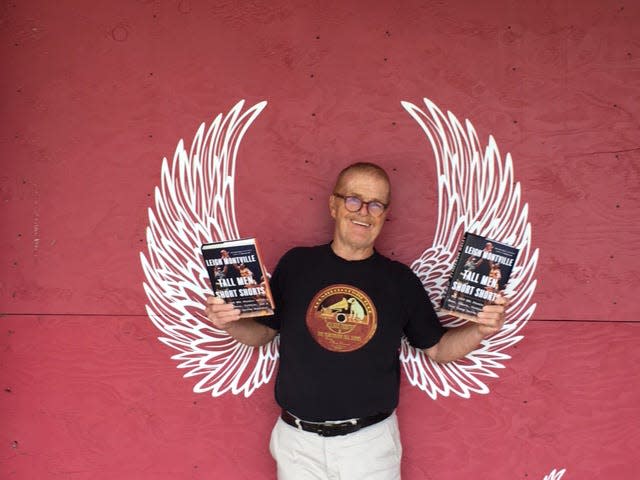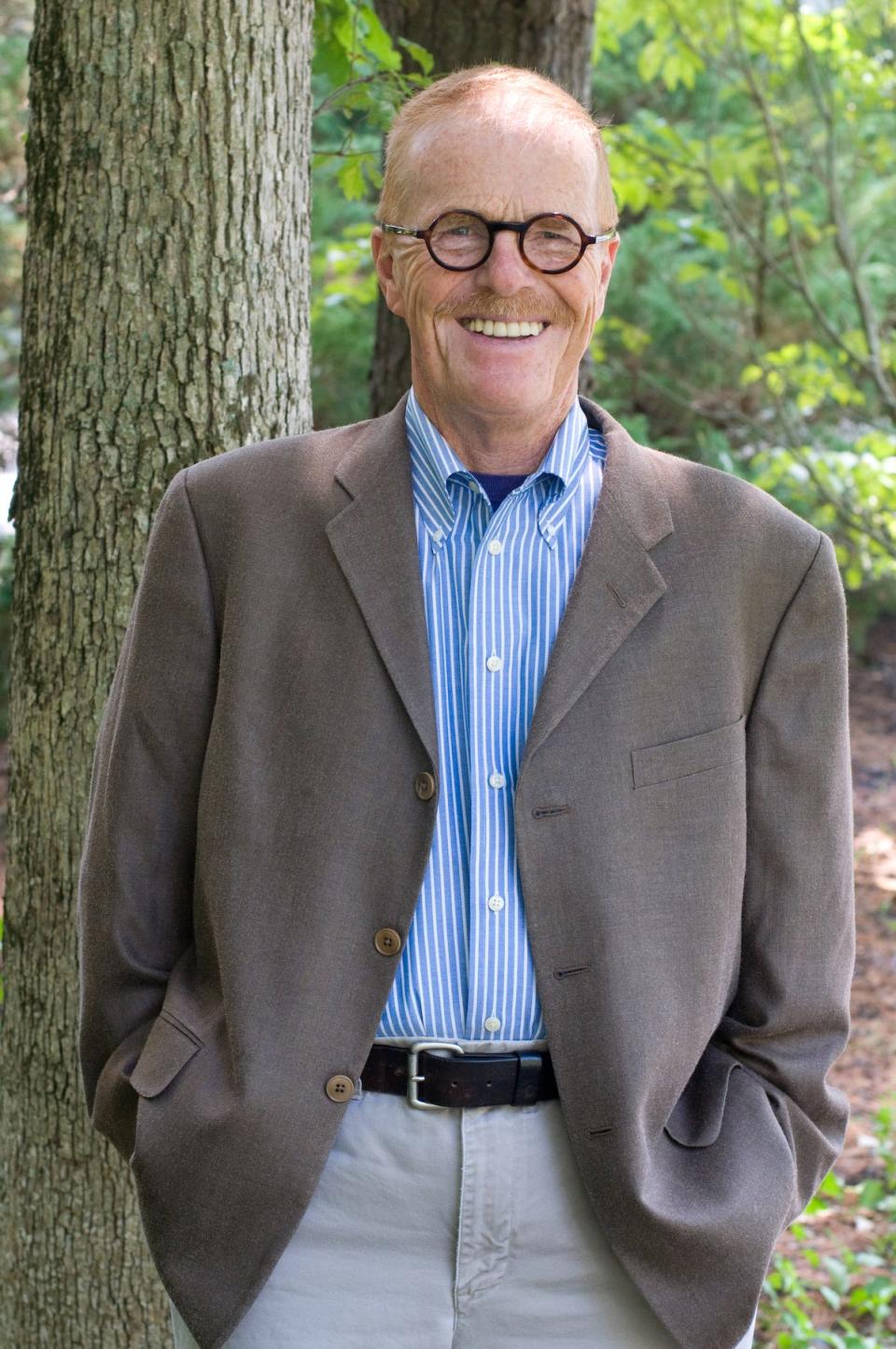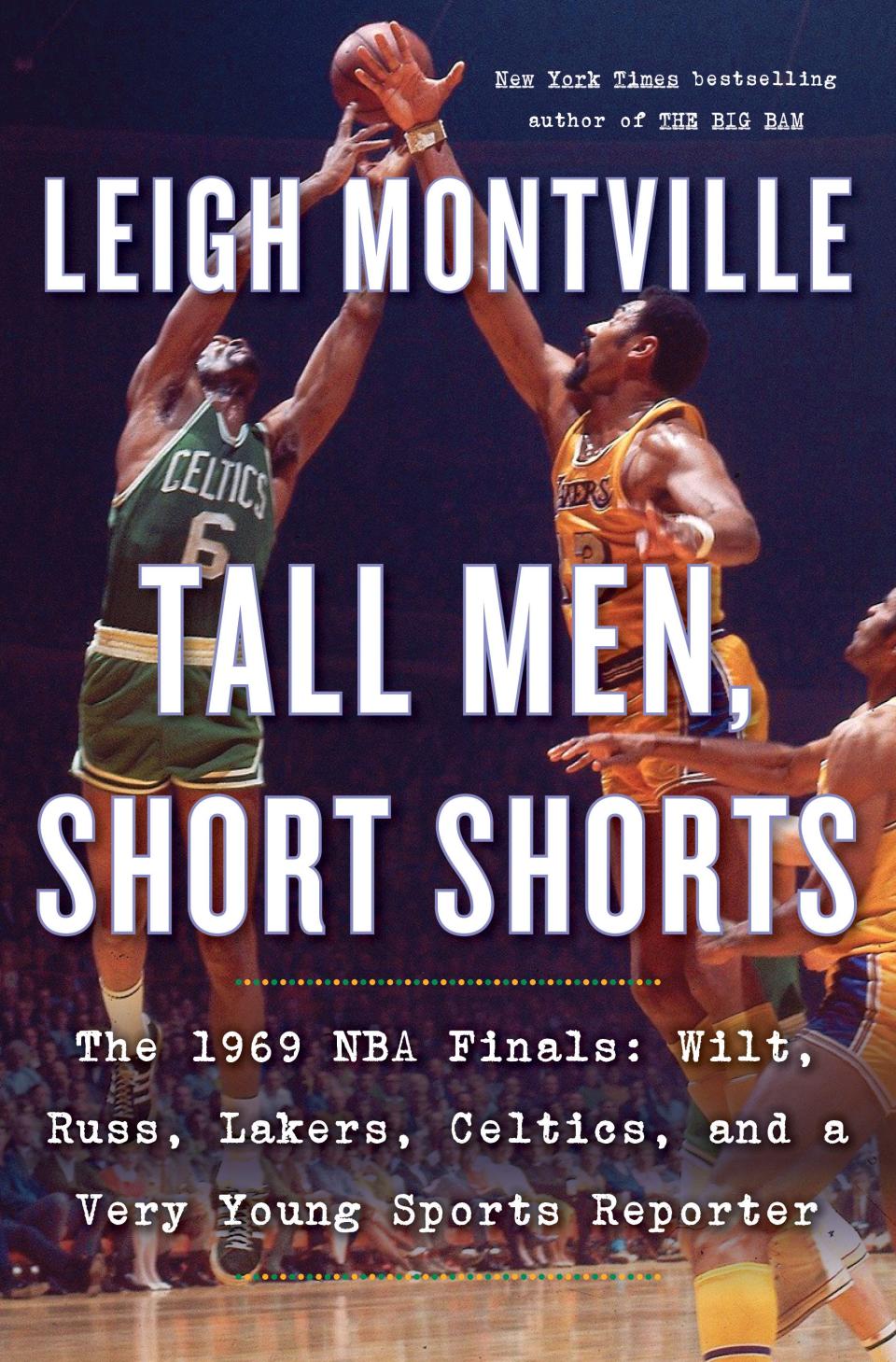BookLovers: Celtics fans, add Montville's book on revisiting the 1969 NBA Finals to your list
- Oops!Something went wrong.Please try again later.
Columnist’s note: I want to spread some BookLovers cheer to sports fans. There are two must-give Celtics books this holiday season from two acclaimed Massachusetts sportswriters: Leigh Montville and Dan Shaughnessy. We’ll meet Montville this week; tune in for Shaughnessy next week. #GoCelts #SportsWriting
Former Boston Globe columnist and Sports Illustrated writer — and now a New York Times bestselling author — Leigh Montville begins his latest “Tall Men, Short Shorts,” with an apt Jackson Browne quote:
Looking out at the road rushing under my wheels. Looking back at the years gone by like so many summer fields.


It sets the stage well for a writer’s look back at his time as a cub reporter covering the Celtics — specifically, covering the 1969 NBA Finals as a 25-year-old rookie sports reporter for the Boston Globe.
Now age 78, Montville begins with a poem of an introduction:
“Canvas sneakers. No instant replays. No commercial breaks… Cigarettes. Basketball. Basketball. Basketball.
“I spent time in buildings that no longer exist. I worked with people who are no longer alive… The rush of it all, the colors, the emotions, the deadlines, the locker rooms, the quotes, the typing, the worry, worry, worry… I was 100 percent alive.”
I get goosebumps reading that. I think any newspaper journalist would.
Montville, of Medfield, is a poet of a sportswriter, with books including “Sting Like a Bee,” “Evel,” and “Ted Williams.” You might remember when he read at UMass-Dartmouth a couple of years back.
What I love about this latest book: it’s as much a journalism book as it is a basketball book.
Aside from recounting an epic championship — Bill Russell, the Celtics, Wilt Chamberlain, the LA Lakers — Montville recounts late ‘60s media culture where newspapers reigned. No social media, no online analytics — not even much TV news. He sums it up succinctly:
“The words mattered. No ESPN. No talk-show radio.”
Throughout, Montville writes in the third person, referring to himself as “The Bright Young Man” or TBYM. He reprints some of his old stories and notes in full, as well as other writers’ stories. He reflects on TBYM’s newspaper glory days, his passion.
I underlined this passage:
“Stories bounce through the young man’s head. Angles. They are there when he wakes up in the morning, there when he goes to sleep… He conducts imaginary interviews that he hopes will happen… He will make the reader see what he sees… feel what he feels.”
And bam: That’s it.
This is a fascinating read for Celtics fans and journalism fans alike. I caught up with Montville, to talk about “Tall Men and Short Shorts.”

Daley: So what sparked you to write about these particular finals now?
Montville: One day, when you get to be a thousand years old, you’ll be telling some of your best stories and you notice that they're received differently. People weren’t born when it happened. You’re delivering ancient history and new news at the same time.
This series happened 52 years ago. I was looking for a book idea and this hit me over the head. A lot of sports events have been done and overdone on television — but television wasn’t really around for the 1969 NBA Finals. They were so old they were new again. I was new again. The Bright Young Man. There was a lot to describe on a bunch of fronts – basketball, newspapers, lifestyle. It was my first big assignment. We all have our Greatest Hits, the stories we spin over and over again. This was a chance to get some of my Greatest Hits into the public record.
Daley: To me, this is a book about the love of journalism.
Montville: Yes, it was about me as much as it was about the series. I wrote a lot about journalism and how it was so different then. The newspaper was a staple of most people’s day. The written word was important. The saddest thing in the world to me is the decline of newspapers and magazines.
Using a typewriter, sending your story by Western Union, or dictating it over the phone, deadlines, and competition every day — this was life back then. It’s a period piece now.
The access was so much different: The players were not a bunch of rich people. They were making just about the same money I was. You sat around with guys in hotel lobbies and on busses and just shot the bull.
Daley: What was it like rereading your old stories? I have clips from my early years—some I have no recollection of writing, and some I cringe.
Montville: It’s like reading a story by a different person, yes. You are a different person. I liked picking myself apart with a critical eye, old me trying to figure out what young me was trying to say. I’ve found you can go back and read something you wrote and be totally appalled, and then read the same story another day and say, “You, know, that’s not too bad.”
Daley: How do you see the state of sports journalism now?
Montville: Twitter is a huge factor. If you go to a press box now, it’s like going to a bank. Nobody is talking. Heads are down, everybody typing out tweets between plays. There are no jokes, no running commentaries. Everything goes into the tweet.
This constant typing takes away from observations, from descriptions, from getting the feel of the event. The writing is different. There are fewer anecdotes, fewer similes, metaphors, grammatical flourishes. Television runs the show. Access has been replaced by analytics.
Daley: What went into the choice to run articles in full?
Montville: I wanted to have that feeling of immediacy. I was trying to make the reader feel as if he were going through the whole experience. You know how sometimes you read old newspapers in a library and get caught up in the time and stay longer than you’d intended, reading the ads and everything? That’s what I was trying to create.
Putting material from other columnists and writers into the package was part of the general buzz. I loved putting some radio transcripts in there, too. Same reason.
Daley: Who was your favorite sports columnist?
Montville: Jim Murray. It was an honor to include material from him — a costly inclusion at that, with some stiff fees from the LA Times. I wanted to be Jim Murray when I started in this business. I still want to be Jim Murray.
Daley: What went into the decision to call yourself “The Bright Young Man”?
Montville: I wrote the first chapter describing the bright young man heading to Los Angeles for the first game, smoking, excited to be on the airplane drinking Pepsi, and watching a Steve McQueen movie. I had no intention of carrying that further, but I liked the feel of that chapter. Could I carry this for an entire book? I decided to try.
TBYM was much different from the thousand-year-old man doing the typing. It was fun to watch him from afar.
The interview has been edited and condensed.
Lauren Daley is a freelance writer. She tweets @laurendaley1. Read more at https://www.facebook.com/daley.writer.
This article originally appeared on Standard-Times: BookLovers: Celtics Fans add Montville's book on revisiting the 1969 NBA Finals to your list

